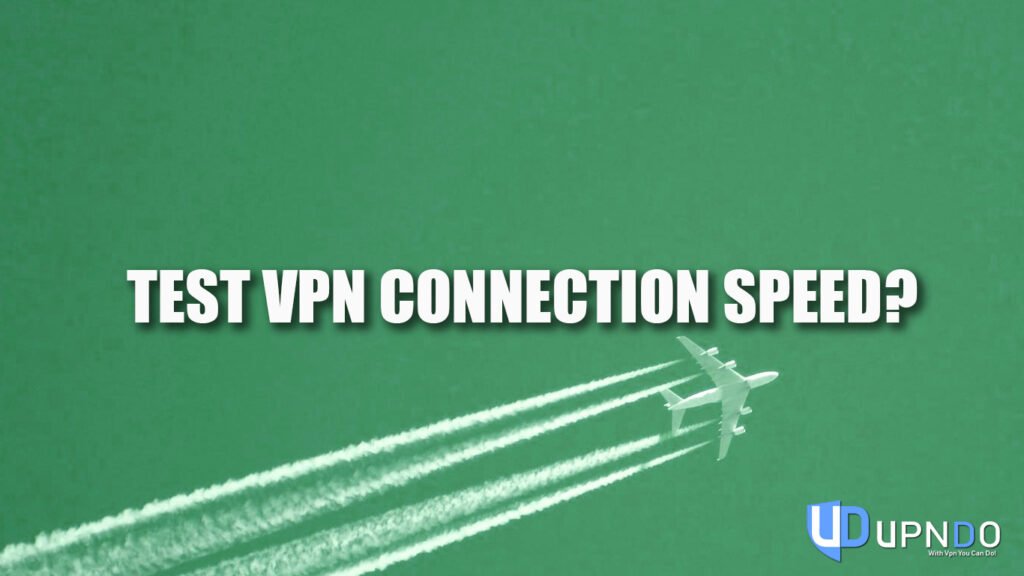Does VPN affect Speed? Find out and take a speed test
The use of VPNs is widespread today, as the benefits, they offer in terms of security and privacy are clear. However, it is also a known fact that a VPN connection can negatively affect Internet speed. How much VPN affects speed is case-specific.
If speed is important to you, you should find out which things affect speed. There can be big differences in VPN services in terms of speed, but location and purpose also have a big impact. This article goes through the things that affect VPN speed, takes a look at how speed can be tested and provides tips on how speed can be improved.
Things that affect VPN speed
There is a myriad of different VPN services available today. Some better and some weaker. VPN services are also used for a variety of purposes, so the speed is not always a priority. In general, however, when looking for a good and versatile VPN service, speed and privacy are the most important criteria. Here are the most common things that can affect the speed of your VPN connection:
Internet operator speed
Perhaps one of the obvious things that affect speed is, of course, the maximum speed allowed by your ISP. You cannot make a VPN run at 100 Mbps if your subscription is limited to 10 Mbps. Therefore, it is a good idea to find out what the speed of the Internet is before using a VPN.
The location of the server to be connected
Once the VPN connection is established, the next most important factor that affects speed is the location of the server to be connected. It’s easy to understand that servers near your location run faster than servers on the other side of the globe. If the server used is close by, you may not lose speed at all, but if it is located further away, the speed may start to drop very radically. In addition, the quality of servers can be particularly affected if they are, for example, TOR servers.
The number of servers and bandwidth
How many people use a VPN server at the same time has a direct effect on speed. If the server is particularly popular and bandwidth is not limited in any way, large numbers of users can collectively slow down the connection. Therefore, paid and especially more expensive VPN services work better in this respect because they have better resources to provide more bandwidth per individual user.
Strength of connection encryption and security
The stronger the encryption required to use a VPN, the higher the speed in general. Encrypting a data stream means that more data has to pass through the same connection than normal. Namely, the encryption of the data stream adds a mass of its own layer to the data, which can consume a lot of bandwidth depending on the quality of the encryption.
Used Encryption and Internet protocols
There are various VPN encryption protocols and these also have a direct connection to speed. For example, the so-called TCP protocol is almost always slower than the UDP protocol. The protocol also defines the encryption algorithm used and has a large impact on latency and speed.
Server routing
How routable data is routed through VPN servers is a clear link to speed. If a service routes data inefficiently through multiple servers, this can eat up large amounts of speed. Fortunately, many larger and established VPN providers use modern routing algorithms that are very efficient, while less experienced VPN services can do this very inefficiently.
Hardware used and network configuration
People use VPN services on computers as well as wirelessly on mobile devices. Of course, the better the connection, the less it needs to pass through wireless Wifi connections. The difference between a wireless connection and a good LAN connection can be like night and day. Of course, the latency due to the device can also have a big impact. If your phone is stuck, the Internet won’t work the best it can.
Test your speed with Speedcheck.org


Before you talk about VPN connection speed, you should be aware of your carrier’s speed under normal circumstances. This may surprise you, because even if you have been sold 100 mps, for example, this is rarely your real connection. Often, the real speed can be up to half the speed specified in the contract. However, if your speed is remarkably low, you may want to contact your service provider to find out why the connection is so slow.
The speed of the band can be easily determined by visiting Speedcheck.org. Speedcheck.org will reliably tell you your normal internet speed, which you can later compare to a speed with a VPN connection. You may notice that this has an effect on speed. The speed test measures the speed and quality of the connected device and the Internet connection. It does so by running several consecutive tests that analyze different aspects of your Internet connection. Speedcheck.org also provides the user with other basic information about the content of the connection used:
Response Time / Ping
The response time or so-called ping describes the delay it takes for the combined signal to reach the desired destination. That is, it is the time that arises from recycling the data from the respondent’s server to the user’s server. This is usually denoted in milliseconds and is one of the metrics commonly associated with internet speed.
Download speed
The download speed is an important measure of the ability of the connection used to perform the tasks assigned to it. The download speed is a unit for the device to receive data from the Internet. It is calculated by dividing the amount of data loaded on the device by the time it has taken. In most cases, the download speed is reported in megabits per second (Mbps or Mb / s).
Upload speed
Instead of the download speed, the download speed describes the amount of data that the device can send to the Internet. It is calculated in the same way and is thus marked in the same units (Mbps or Mb / s).
Connection stability
Speedcheck.org describes connection stability in terms of download and upload speeds. This is essential information, for example, in that, especially in streaming, a smoother connection always means better quality and uninterrupted transmission.
IP address
The IP address tells you the name of your device, which can be used to determine in which country, city, and even the user’s device is located. This is one reason why people use VPN connections, and the Speedcheck.org speed test makes it easy to find out if you see your real IP address on the Internet or the cover IP address provided by the VPN service.
Service provider
Speedcheck.org also tells you the name of the ISP used. In addition to your IP address, hackers may be interested in the ISP you use and profile you accordingly.
Safety and personal info
In connection with the above, the service can also tell you if your information is insecure and recommend that you use a VPN connection to fix the issue. For many, one of the main reasons for using a VPN is to ensure privacy.
Test your speed and connection at Speedcheck.org


Test VPN connection speed?
Once you’ve figured out the right speed for your Internet connection under normal circumstances, it’s time to test the speed over a VPN connection. You may be surprised, as the VPN you use can really slow down your speed. When the VPN service is connected, all Internet traffic is routed through the VPN server. Thus, every Web page you visit, you started each charge, each viewing streaming passes through the third-party server. And as you might expect, this often has an effect on speed.
When you recommend a VPN connection speed test, you are also testing its security. After setting up a VPN connection, run the test at Speedcheck.org as usual. You will see the results as before, but this time you can compare the results with your previous test. If everything seems the same as before, check the IP address listed first. Which IP address is the same as before, your VPN connection will not work properly. Same thing, if your service provider is the same, it is unlikely that a VPN service would use the same service as you. Please check your VPN and Internet settings and test again.
If everything is fine and you are satisfied with the speed of the VPN service, you can continue to use it as usual. However, if the VPN does not protect you properly or is too slow, you may want to consider testing another service. It is quite clear that not all VPNs work equally well. Especially free VPN services.
How to improve VPN speed?
If you are not happy with the speed of your VPN service, there are a few features you can use to improve your connection speed. Here are some tips to help you get the most out of your VPn service:
Configure the VPN protocols correctly
If the VPN service you are using offers multiple VPN protocols, you can try switching them to improve speed. If you’re having trouble together, you can try another to connect to the fastest VPN servers.
Specify another server location
If your connection is slow, you can try speeding it up by switching to a server in a better location. Good VPN services offer multiple servers, in several different countries, so this is one easy thing to take over and improve speed. Try connecting to another server in the city of your choice or in a nearby location where you want to use a secure connection.
Check personal devices and connections
If you have multiple VPN connections at the same time, or your antivirus is too strict, this can cause speed issues. Never use more than one VPN service at a time and allow your device to use the connection reliably. You may also want to check your computer, modem, or router settings if you suspect that these may affect your speed.
Switch to a faster VPN service
If none of the above methods help, but you still want a high-speed VPN service, you may want to consider setting up a new service. We can especially recommend Cyberghost VPN as it is one of the most versatile VPN services. First, it is fast and has a global service network with the right server for any situation.







